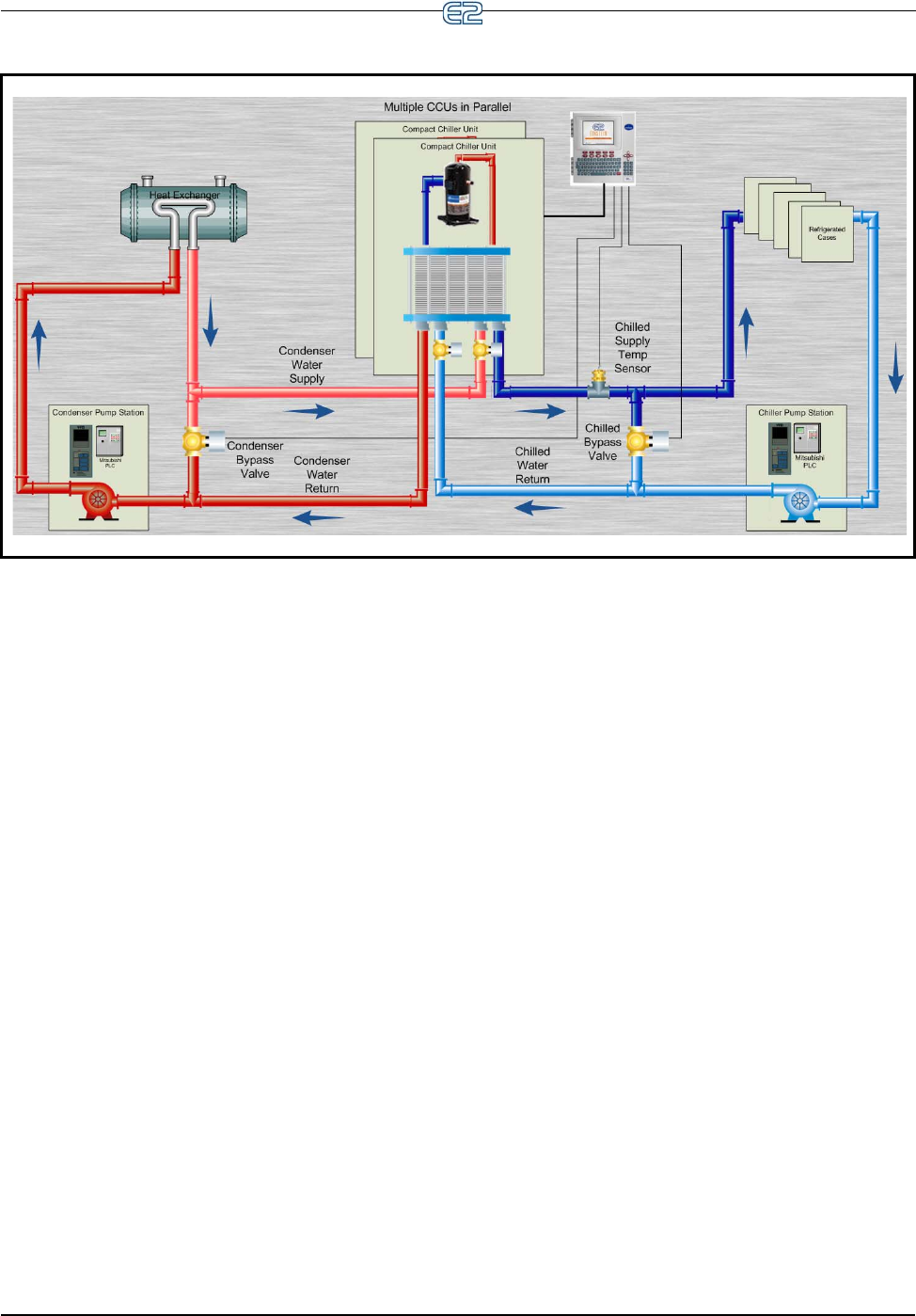
11-54 • E2 RX/BX/CX I&O Manual 026-1610 Rev 13 14-SEP-2011
11.23.2 Learning Mode
When an MCC application runs for the first time, it
undergoes a "Learning Mode" period to collect data on the
chiller stages. During Learning Mode, the MCC will con-
trol the chilled water temperature, but it will purposely
cycle the chiller stages in different combinations to mea-
sure the effect they have on the temperature input value.
The Learning Mode lasts for several minutes. After
Learning Mode ends, the MCC will require up to 24 hours
of operation before compressor cycling is operating at
maximum efficiency. If compressor cycling seems too fre-
quent after 24 hours of operation, you may reduce com-
pressor cycling by changing the Control/Cycles parameter.
11.23.3 The Control/Cycles Parame-
ter
The MCC has one parameter with five preset settings
to allow users to alter temperature control performance or
compressor cycling frequency. The default setting, "Mod-
erate Control," seeks to balance good temperature control
with efficient cycling. If tighter control is needed, setting
the field to "Tight Control" or "Tightest Control" will
increase the application's reaction to temperature changes,
resulting in tighter control (usually at the expense of more
frequent cycling). If fewer compressor cycles are desired,
setting the field to "Less Cycling" or "Least Cycling" will
decrease the number of cycles but also increase the
amount of fluctuation in the temperature control.
11.23.4 Compressor Control
MCC can utilize up to 32 compressors for maintaining
the chilled supply temperature at a user specified setpoint.
This is accomplished by either turning on or off any of the
compressors defined in the application. As Supply Tem-
perature rises above setpoint, compressors will be turned
ON. As Supply Temperature falls below setpoint, com-
pressors will be turned OFF. The Chilled Supply Tempera-
ture sensor should be located very close to the Compressor
Control Unit so no minimal control lag is expected to be
present.
When a compressor has been shut down on an alarm,
the compressor will remain out of the active rotation until
the alarm has been cleared. Additionally, the user will
have the option of specifying that the alarmed compressor
be re-tried the next time it comes up in the rotation. To
prevent damage to a compressor, the user will have the
option of specifying a number of trips per day before the
compressor is permanently locked out. Once this condition
has occurred, the compressor alarm will require a manual
reset to bring it back into the active rotation.
The controller will monitor the Chilled Differential
Pressure and if it falls below a user specified threshold, the
controller will start to shut down compressors one at a
time based on a user specified time delay. This shutdown
operation will be suspended if the Chilled Differential
Pressure rises above a user defined setpoint.
Figure 11-1
- Compact Chiller System


















